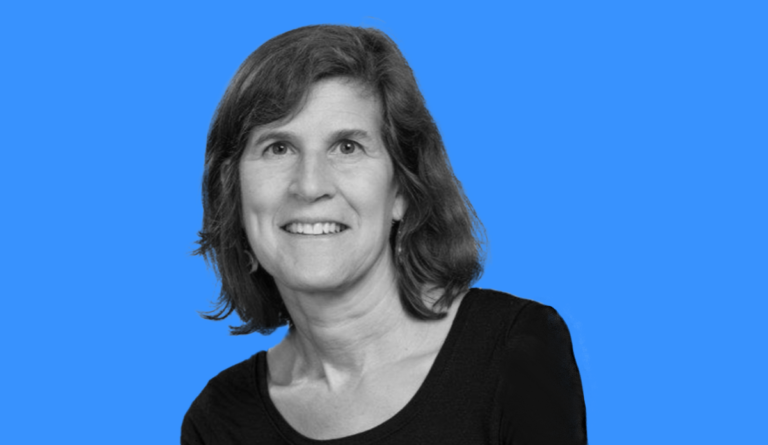Caren Solomon
Caren Solomon is a physician and deputy editor at the New England Journal of Medicine, where she oversees a series of review articles for practicing physicians, and handles original articles related to clinical cases, women's health, and most recently, climate change.

Read Time: 4 minutes
Published:
Caren Solomon is a physician and deputy editor at the New England Journal of Medicine, where she oversees a series of review articles targeting practicing physicians, and handles original articles related to clinical cases, women’s health, and most recently, climate change.
Caren Solomon is a physician and deputy editor at the New England Journal of Medicine (NEJM). She has been at the Journal for over twenty years, and oversees a series of review articles targeting practicing physicians, as well as articles related to clinical cases, women’s health, and most recently, climate change.
Solomon has been focusing on increasing climate change coverage in the Journal, a goal that she notes is strongly supported by the editorial team. “Climate change is a public health emergency,” she tells PHP. “We have published articles on this issue before, but recognizing the acceleration of the problem and the urgency to act, we doubled down on a commitment to cover this issue. We are currently publishing a series of articles on fossil fuel pollution and climate change, touching on many different aspects of the problem, and our plan after the series concludes is to continue publishing on the topic regularly.”
The commitment of the NEJM editorial team in covering the climate crisis is not limited to the Journal itself. They are also publishing articles in the climate change series in two more journals under the same umbrella: NEJM Evidence and NEJM Catalyst. “It’s the first series we have had with articles in all three journals. We are, hopefully, reaching different audiences and covering complementary topics.” Solomon explains, “We also engaged our educational site, Resident 360, to host a discussion of incorporating climate change into medical school and residency curricula. And we have developed a video based on the first article we published in the series addressing effects of fossil fuel pollution and climate change on children’s health. We are trying to address this issue across multiple domains.”
Solomon’s efforts to increase coverage for climate and health took her to the American Public Health Association’s Annual Meeting in Boston in 2022. She used her public address there to discuss consequences of climate change and how it can be particularly harmful to women. “There are particular risks related to pregnancy. During pregnancy, women and the fetus can be sensitive to high levels of air pollution, extremely high temperatures, or heat waves,” she explains. “There are also mental health harms related to climate change that disproportionately affect women. Anxiety, depression, and PTSD are common following exposure to extreme weather events, and there is evidence that women are at particular risk. Extreme weather events and associated stresses are also associated with increases in intimate partner violence. Any of these issues can affect men or women, but women are at greater risks in part because of social structures that disadvantage women.”
She explains that these social structures not only place women at a disadvantage. “Low-income communities and communities of color are at much higher risk for many health effects of climate change. They are exposed to more air pollution. They are exposed to more extreme heat. They are often living in areas where there is more fossil fuel infrastructure. All of these factors have adverse health effects. Women of color and low-income women are among the most vulnerable groups.”
When asked how to move forward in what looks like a somewhat grim future, Solomon admitted, “I was a late bloomer in getting involved in climate change action. It was my children and their concerns that raised my awareness.” But she has hope. “Having a younger generation that recognizes the urgency and the existential nature of this crisis and is demanding climate action is critical for getting done what is needed.”
She leaves this message to public health students: “You are integral in helping to create a more sustainable and livable future.”
She urges everyone, regardless of their field in public health, to recognize that climate change is the greatest public health crisis right now. “Your voice matters. So does getting involved. Whether that is on a teaching level where you are educating colleagues, students, or your communities about the problem. Or on an advocacy level, where you can get involved in the political process and have your voice heard in that way. And I encourage you, along the way, to amplify the voices of those communities that are most affected.”
Photo provided



